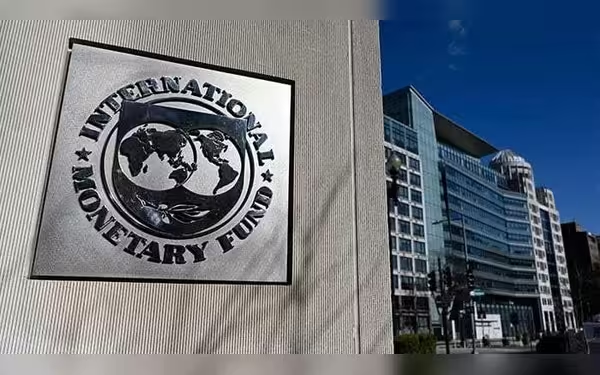Thursday, July 4, 2024 05:47 PM
IMF Urges Pakistan for Transparent Investment Policy
- IMF requests draft of investment policy and transparency in SIFC operations
- Recommendations include GST on petrol, boosting non-tax revenues
- Differing perspectives on GDP growth and inflation for 2024-25 budget
 Image Credits: geo
Image Credits: geoThe IMF urges Pakistan to share its investment policy draft, emphasizing transparency in operations. Recommendations include GST on petrol and strategies to boost revenues. Differing perspectives on GDP growth and inflation for the upcoming budget pose challenges.
The International Monetary Fund (IMF) has requested Pakistan to share the draft of its upcoming investment policy and ensure transparency in the operations of the Special Investment Facilitation Council (SIFC). This comes in light of projections indicating a 12.7% CPI-based inflation rate for the 2024-25 budget. The IMF has also raised concerns about tax exemptions for Special Economic Zones (SEZs) under the China-Pakistan Economic Corridor (CPEC) and recommended strategies to boost non-tax revenues.
One of the key recommendations from the IMF is the imposition of an 18% Goods and Services Tax (GST) on petrol and diesel, in addition to the Petroleum Development Levy (PDL), aimed at enhancing revenue collection. However, discussions between Pakistan and the IMF have not yet advanced to formal talks for a new bailout package under the Extended Fund Facility (EFF).
There are differing perspectives on the macroeconomic outlook for the 2024-25 budget. While the IMF foresees a 3.5% real GDP growth rate and 12.7% inflation, the Ministry of Finance anticipates GDP growth ranging from 3.7 to 4% and inflation between 11 to 12%. Debt servicing remains a significant challenge, with the IMF estimating Rs9.787 trillion for the upcoming budget.
The government is currently finalizing the macroeconomic framework, which will have implications on revenue generation, expenditure, and debt management. The IMF's emphasis on transparency in the SIFC's operations underscores the importance of accountability in investment facilitation and privatization plans for state-owned enterprises.
Looking ahead, the imminent announcement of the investment policy, particularly focusing on SEZs, is expected to introduce tax incentives akin to those available for other projects. The Finance Minister remains hopeful about reaching a consensus with the IMF following budget approval and parliamentary support.
As Pakistan navigates economic challenges and engages with the IMF on critical policy matters, transparency, and strategic fiscal decisions will play a pivotal role in shaping the country's financial landscape. The forthcoming investment policy and ongoing discussions with the IMF are crucial steps towards fostering sustainable economic growth and stability.













